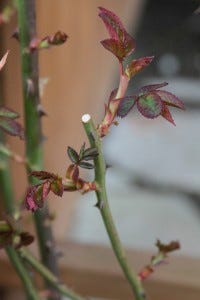The Pruning

Bob Jenkins, Pruned Rose (Flickr)
"I am the vine, you are the branches. Whoever remains in me and I in him will bear much fruit."
Usually, when I've heard or read the parable of the vine and the branches, I've mainly been drawn toward and reflected upon the phrases about being part of the vine and remaining in Christ - that is, remaining in Christ's body…
Keep reading with a 7-day free trial
Subscribe to Dad & Deacon | Deacon Michael's Substack to keep reading this post and get 7 days of free access to the full post archives.

